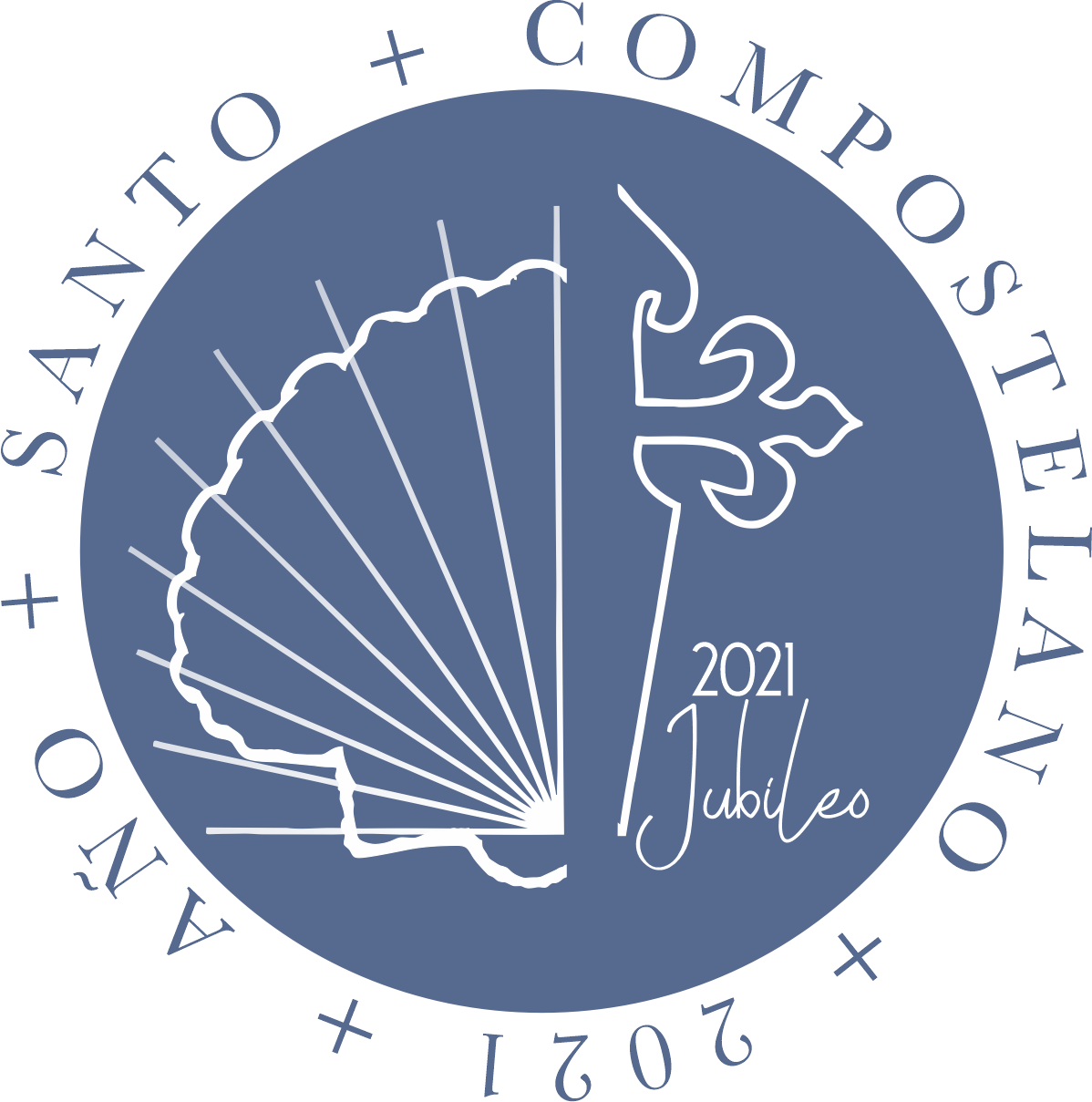
What is the holy year?
The Compostela Holy Year of Jubilee is a period when the Church grants singular spiritual graces to the faithful, imitating what the Bible says regarding the jubilee year to the Israelites: But in the seventh year the land is to have a year of Sabbath rest. Consecrate the fiftieth year and proclaim liberty throughout the land to all its inhabitants. (LV: 25).
Jesus says He has come to proclaim the year of the Lord’s favour (Luke 4:16).
The Church of Compostela, through its Holy Year, also grants a special year of favour.
When does the holy year take place?
It is Holy Year in Compostela when the 25th of July, Commemoration of the Martyrdom of Saint James, falls on a Sunday. It takes place every 11, 6, 5, 6 years. It originated in 1122, with Pope Callixtus II, and was later confirmed by Pope Alexander III through the Bull “Regis aeterni” from 1179, granting it perpetuity.
Throughout the centuries the See of Peter has on many occasions praised the pilgrimage to Santiago and the Holy Year.
“We call upon ourselves dear sons and daughters to follow that path of evangelic faith, of Christian authenticity and illuminated hope which, for centuries has guided so many souls to the Temple of Compostela”. (Paul VI: A. St 1971).
“I share the joy… for the period of favour and pardon that the Lord grants, once again, to the beloved community of Spain and all of Christianity… that the Jubilee is for everyone an occasion for true reconciliation”. (John Paul II: A St 1982).
“I express my special closeness to the pilgrims who have come and who will continue to come to Santiago. I ask them to treasure the evocative experiences of faith, charity and brotherhood that they meet with their journey, to experience the Way especially inwardly, letting themselves be challenged by the call that the Lord makes to each one of them. Thus they will be able to say joyfully and firmly at the Portico of Glory: ‘I believe’”. (Benedict XVI: A St 2010).
Earning the jubilee
To earn the jubilee it is necessary to:
Visit the Tomb of the Apostle in the Cathedral and say a prayer.
Receive the sacrament of Confession (either in the cathedral or in any other place, fifteen days before or after).
Receive the Communion. This Indulgence is applicable to the deceased.
Neither the Favour of the Jubilee nor the pilgrimage are linked, in themselves, to the Compostela. One can earn the Jubilee by travelling by any means and it is possible to obtaining the Compostela without earning the Jubilee.
Jubilee graces
Plenary indulgence, which can be gained once a day (applicable to the deceased), under the following conditions:
Visit the Cathedral saying a prayer, e.g. the Our Father and Creed, praying for the intentions of the Roman Pontiff.
Receive the sacrament of confession (15 days before or after) and the holy communion.
Faculties for confessors:
All priests with licence to confess may hear confessions in the Cathedral, in the City’s parishes and at the Monte do Gozo.
Absolution from “censures” except those reserved for the Holy See (v. CIC c 1367, 1370, 1378, 1382 and 1383) but with the faculties granted by cc 976 and 1357.
Commute and dispense vows under the conditions established by the Church.

